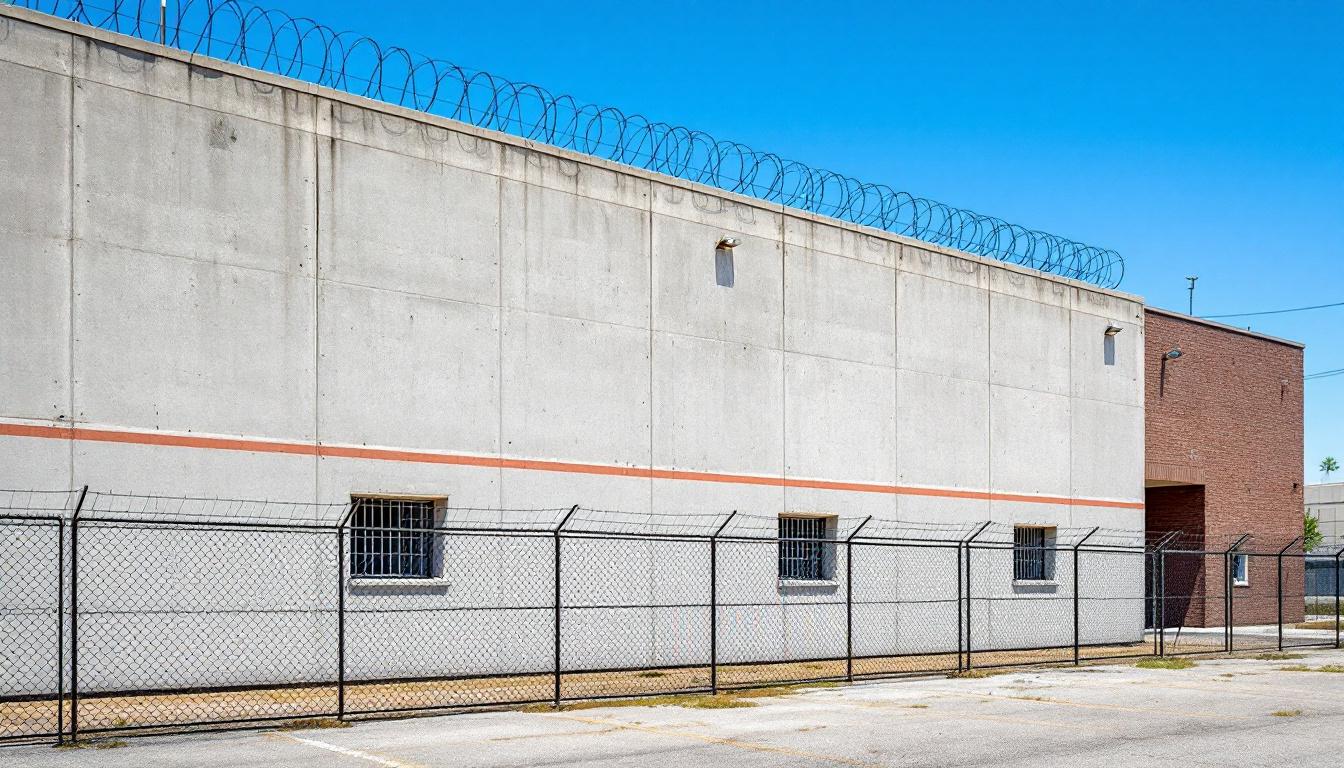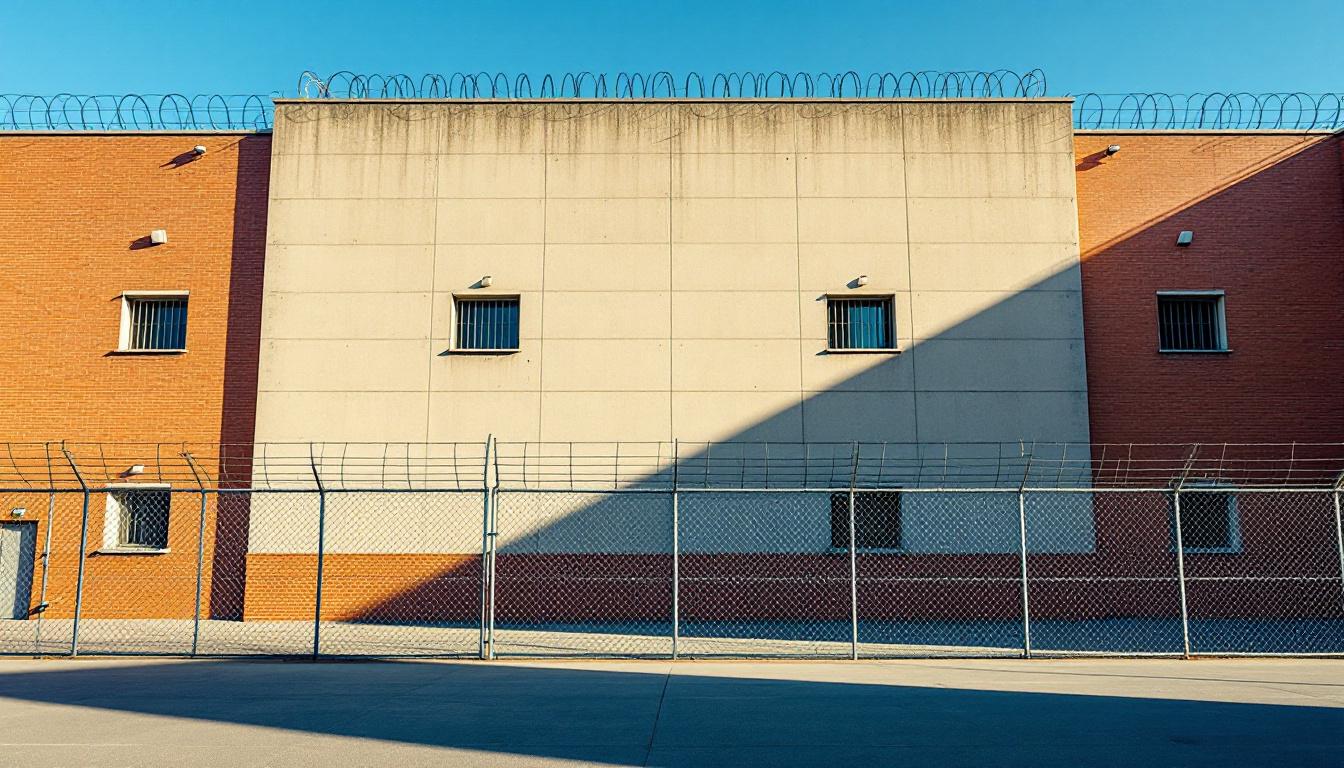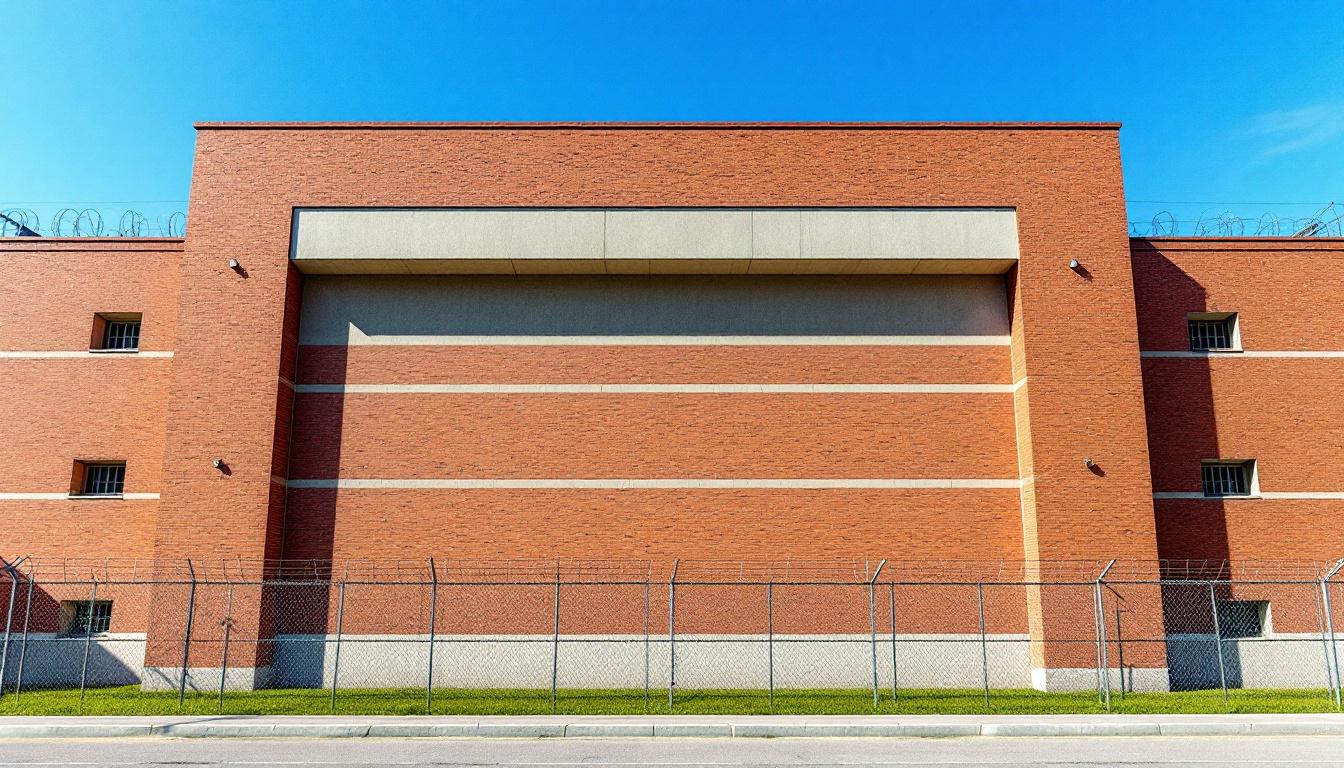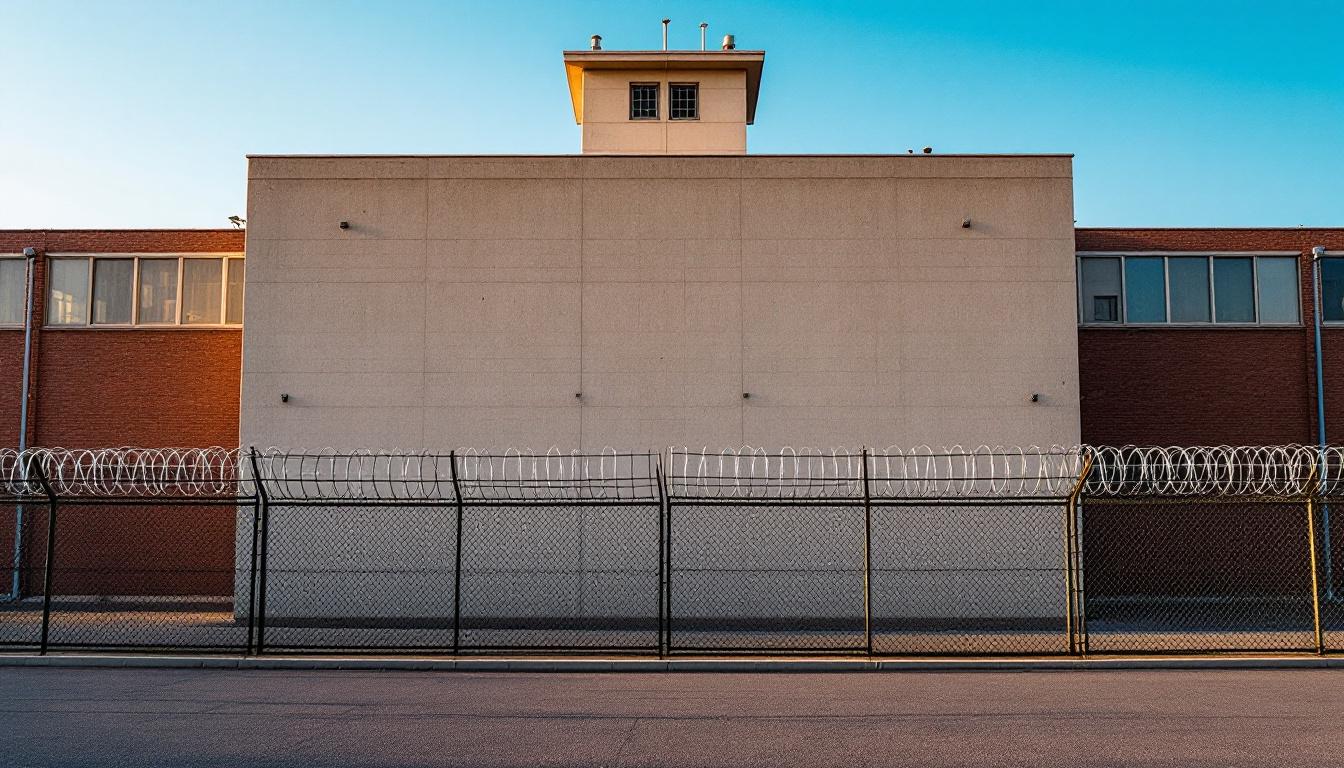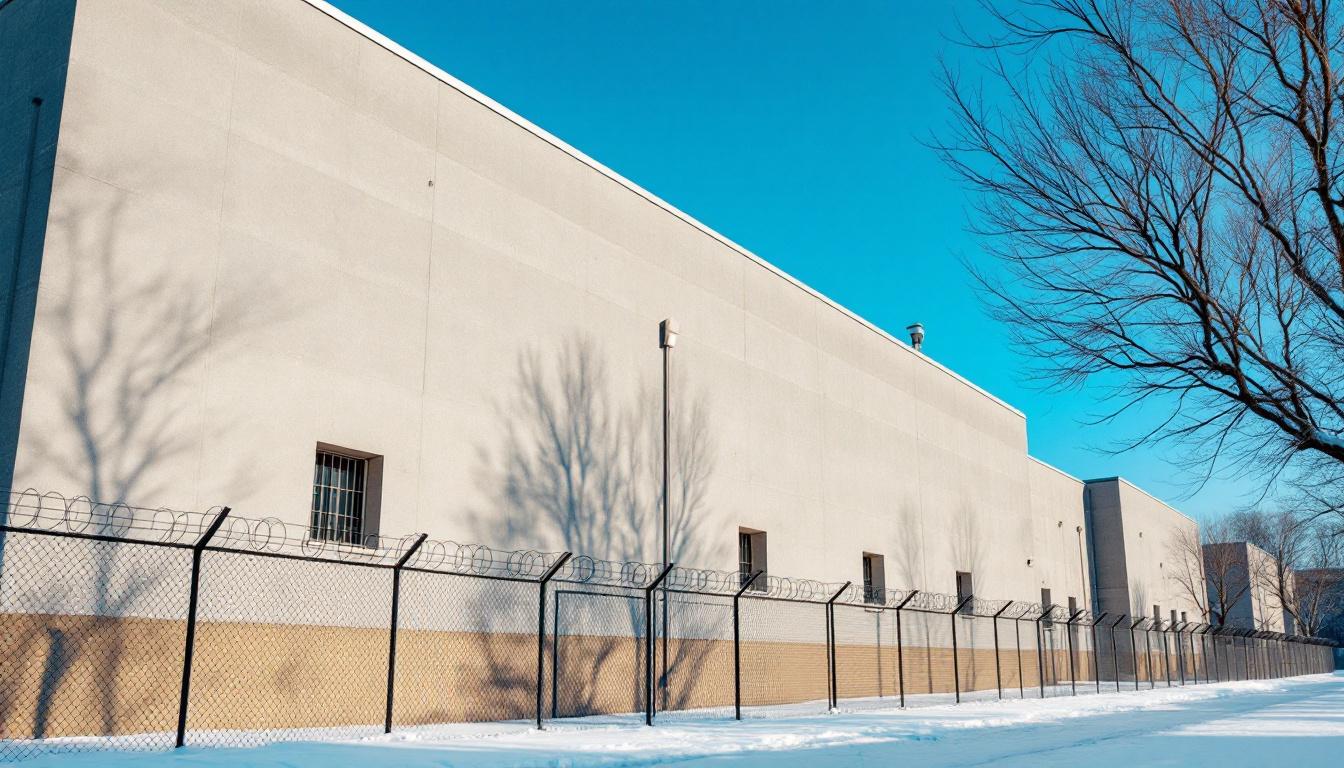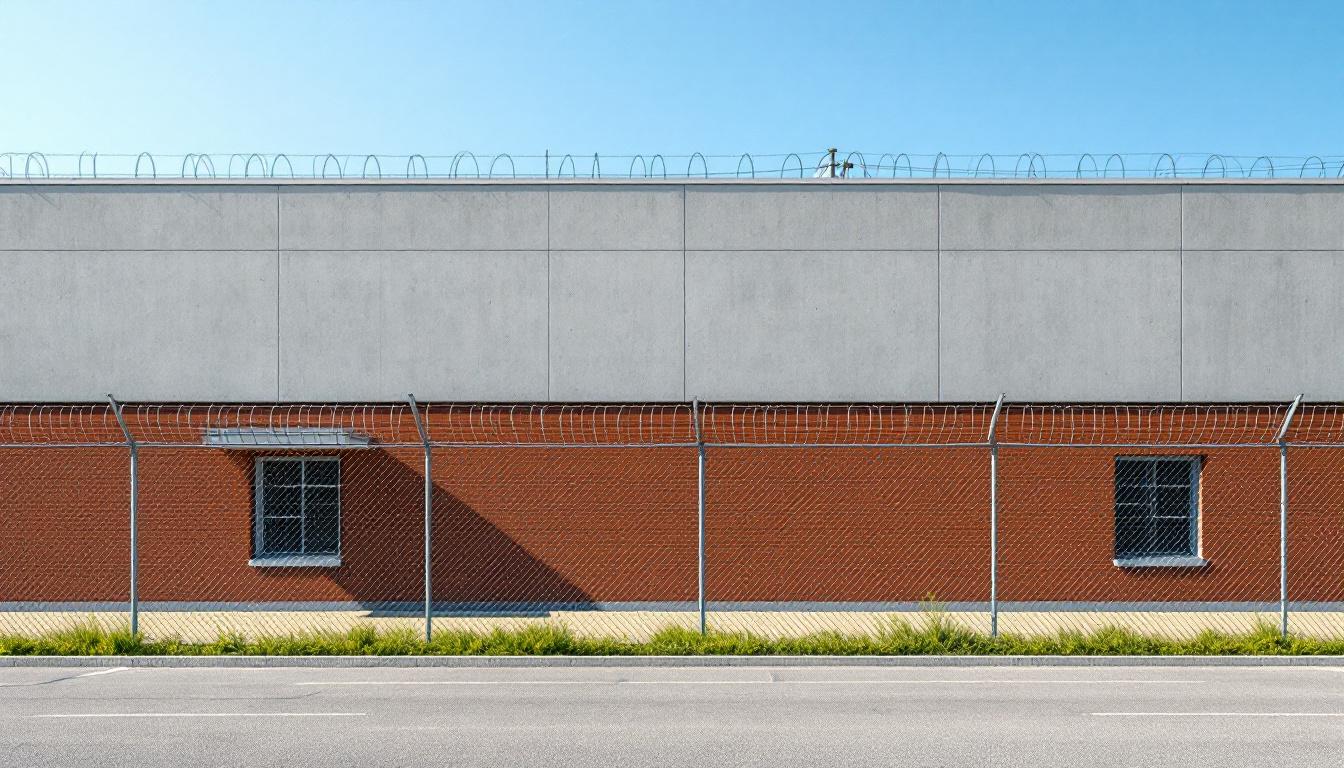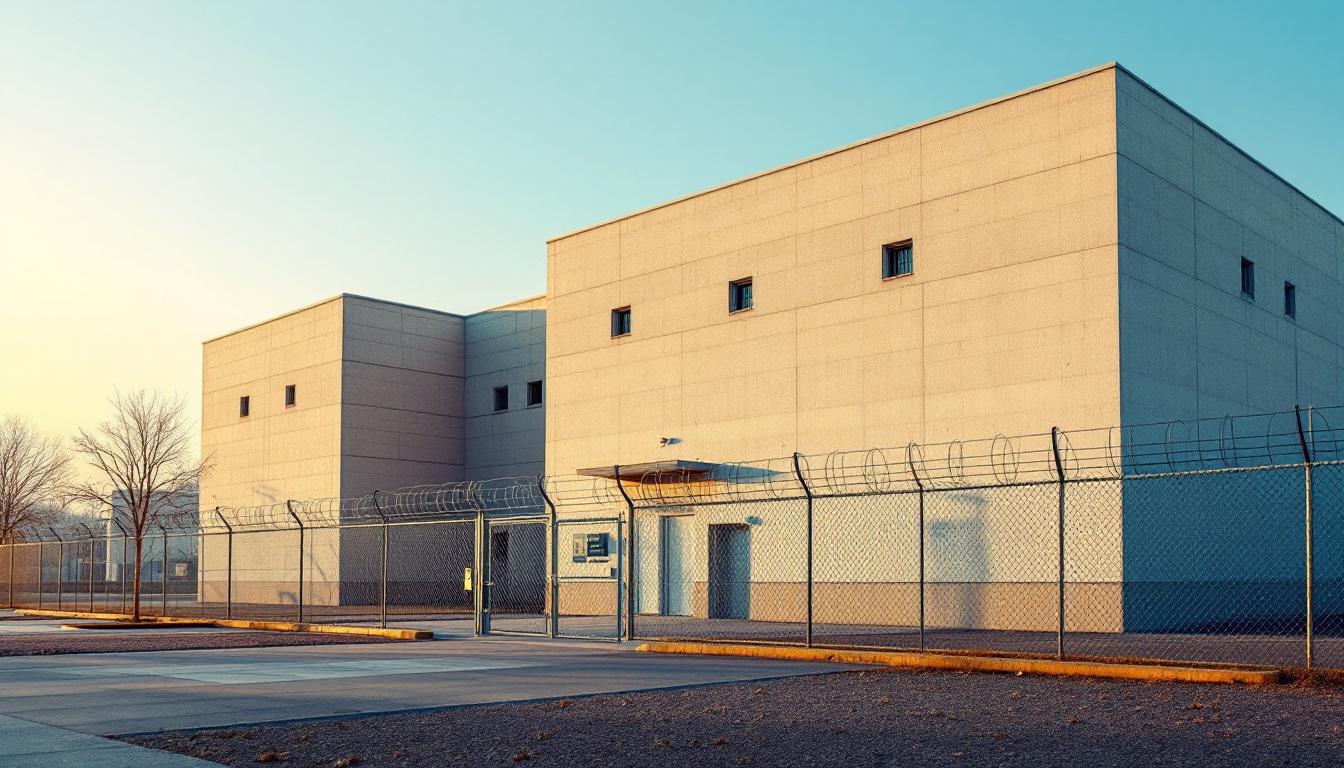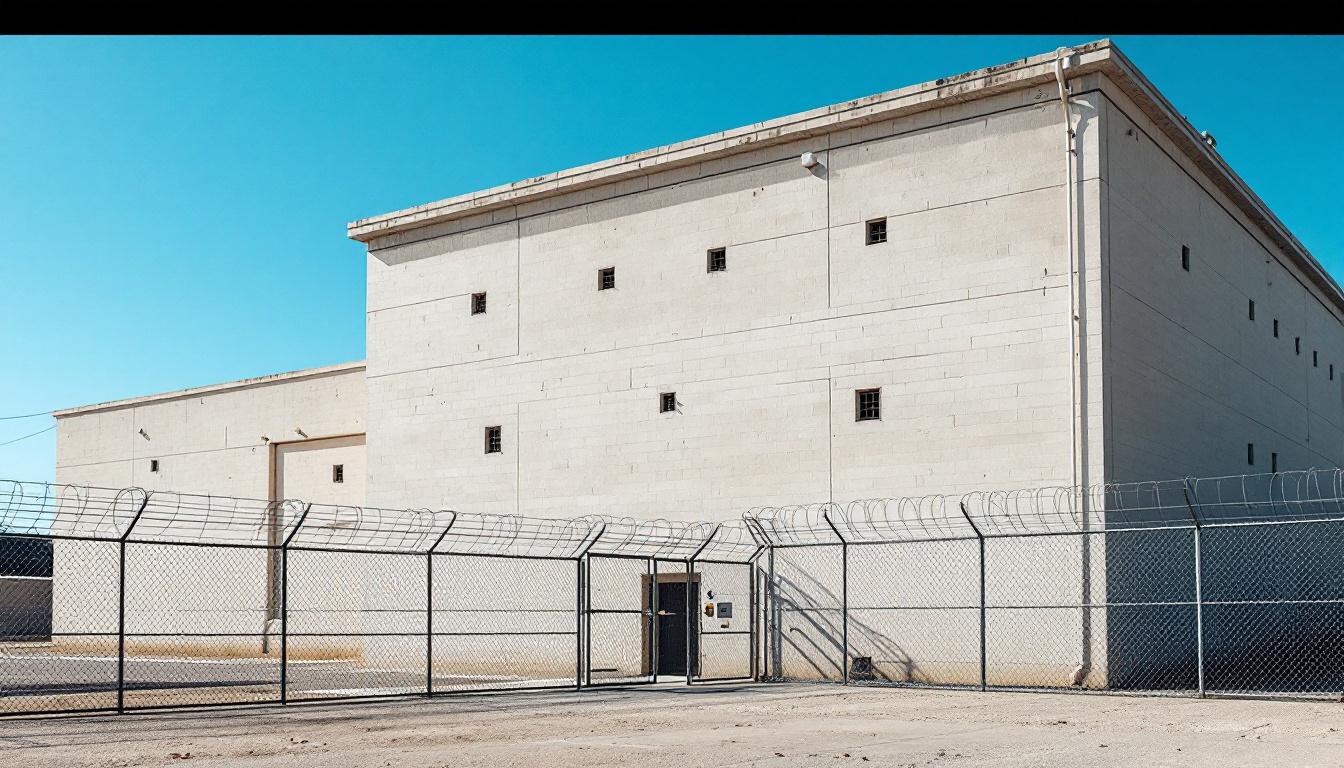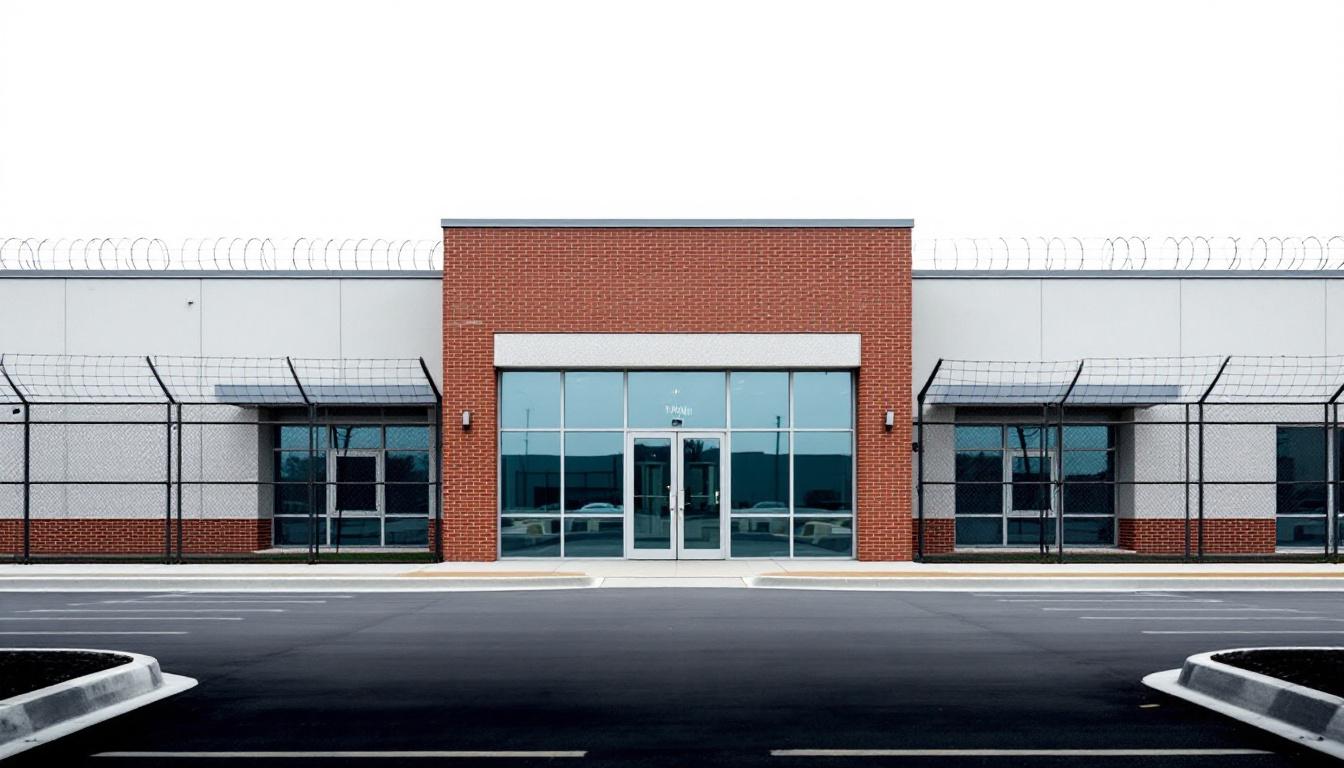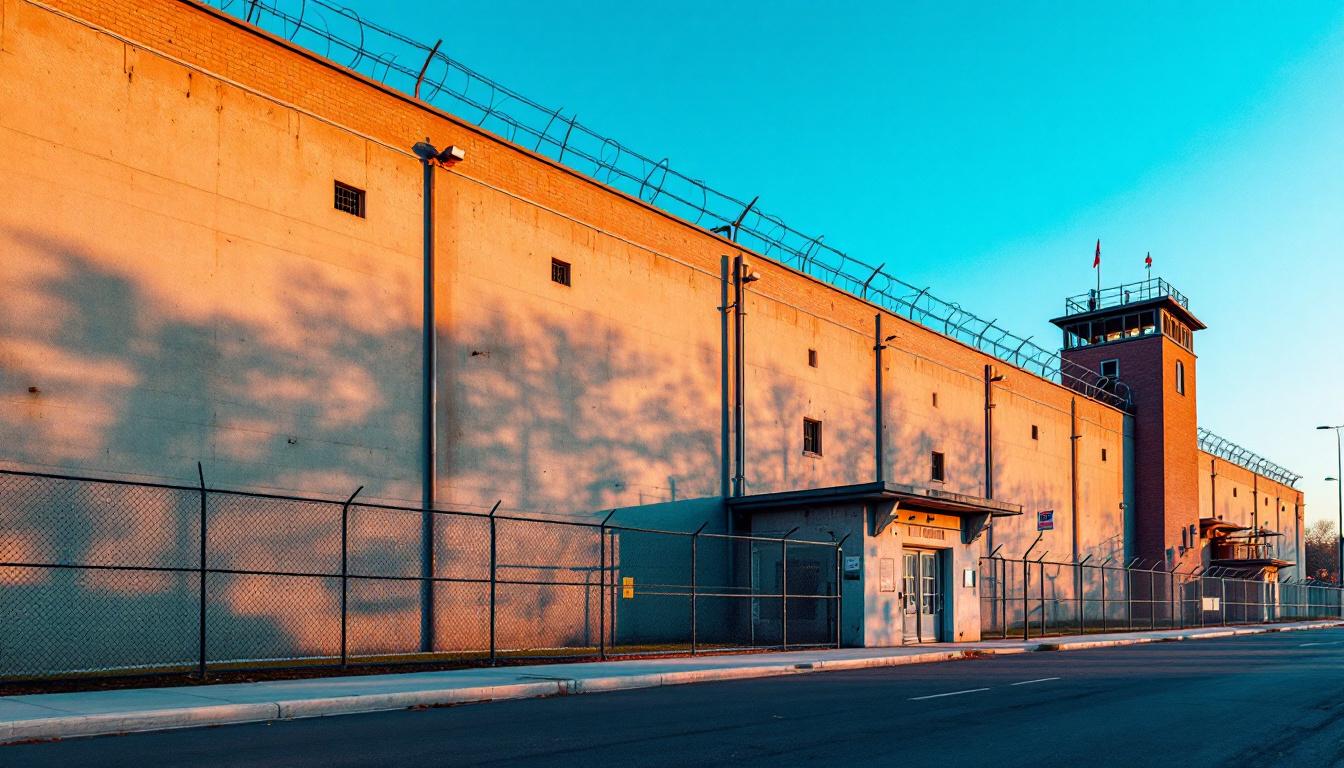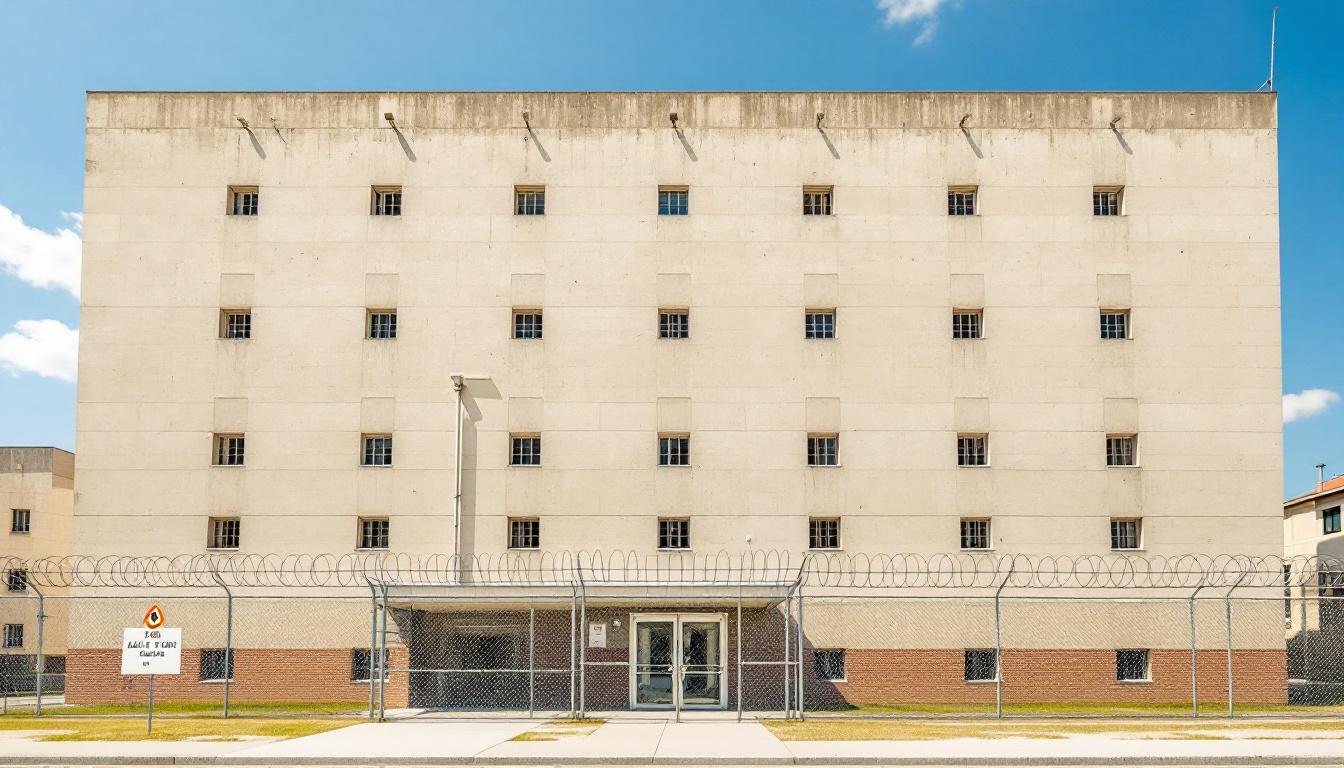
Quick Navigation
How to contact an inmate at Tangipahoa Parish Jail
This comprehensive guide will walk you through how to connect with an inmate at Tangipahoa Parish Jail. Follow the steps below to find an inmate and send letters and photos:
- Search for the inmate using our search tool below
- Create your account or log in to Penmate
- Write your message (up to 6,000 characters)
- Send instantly - inmates receive printed copies daily
Find an Inmate
Search for an inmate to start communicating today
Tip: You can search by first name, last name, or inmate ID number
To contact a person at Tangipahoa Parish Jail start by searching for the person on the official facility website. Perform a search by following these steps:
- Step 1: Enter their first name and last name into the search form and click "Search"
- Step 2: Locate their inmate record
- Step 3: Write down their Inmate ID and any housing information provided
Important! Be sure to enter the person's full name. Nicknames should not be used.
How to Send Messages to Inmates

You can use your phone or computer to send emails, letters, and photos to an inmate. Messages are sent electronically to inmate tablets or kiosks at the facility. If you would like to send a message, start by searching for an inmate at Tangipahoa Parish Jail.
Sending Photos and Postcards

A great way to send love and support to a loved one at Tangipahoa Parish Jail is to send photos and postcards. It only takes a few minutes to send photos from your phone and it makes a huge difference. You can also mail postcards with words of support and inspiration, or design your own postcard for special moments like birthdays and holidays.
Important! Be sure not to send any explicit photos or they may not be approved by the facility. You can also use a photo printing app like Penmate to make sure your photos are printed at the correct size (4x6 or 3x5) and are mailed according to the rules and regulations of Tangipahoa Parish Jail.
Frequently asked questions about Tangipahoa Parish Jail
-
How long does it take to deliver a message?
If you're sending an email message your letter is usually delivered within 24-48 hours. For messages sent via mail you should expect delivery within 3-7 days. All messages will need be approved by Tangipahoa Parish Jail.
-
How much does it cost to send a message to Tangipahoa Parish Jail?
You can send a message free using your phone or mail a message via USPS for the price of a $0.60 stamp and envelope. You can also purchase credits or e-stamps from services starting at $1.99.
-
What services can I use to contact an inmate at Tangipahoa Parish Jail?
Penmate
You can use Penmate to send letters and photos to an inmate from your phone. It's an easy way to stay in touch during your loved one's incarceration. Use the inmate locator to find an inmate's location and contact information, then you can send messages within a few minutes.
Securus messaging
Securus may be another option for communicating with an inmate at Tangipahoa Parish Jail. You can create a friends and family account and purchase credits to send messages. All messages will be reviewed and must be approved by the facility.
JPay
Some county jails and state prisons may support sending messages with JPay. You must register an account with the system, find your loved one, and purchase stamps to send messages. For some locations you can also attach photos.
Smart Jail Mail
You may also check if Smart Jail Mail is available at Tangipahoa Parish Jail. Smart Jail Mail is operated by Smart Communications and has contracted with some state and county jails. After purchasing credits, your messages and photos are sent to the facility, printed out, and then handed out to your loved one.
-
What is the mailing address of Tangipahoa Parish Jail?
Mailing address:
Tangipahoa Parish Jail
101 Campo Ln
Amite City, LA 70422
Phone: (985) 345-6150Business hours:
- Monday: Closed
- Tuesday: 1:00 – 3:00 PM
- Wednesday: Closed
- Thursday: 1:00 – 3:00 PM
- Friday: Closed
- Saturday: Closed
- Sunday: Closed
-
What are the visiting hours at Tangipahoa Parish Jail?
Visiting hours at Tangipahoa Parish Jail vary by housing unit and security level. Generally, visits are scheduled on weekends and holidays, with some facilities offering weekday visits. Contact the facility directly at (985) 345-6150 or check their website for the current visiting schedule. Visits typically last 30-60 minutes and must be scheduled in advance.
-
What items are prohibited when sending mail to Tangipahoa Parish Jail?
Prohibited items typically include: cash, personal checks, stamps, stickers, glitter, glue, tape, staples, paperclips, polaroid photos, musical or blank greeting cards, hardcover books, magazines with staples, and any items containing metal or electronics. Only send letters on plain white paper with blue or black ink. Photos must be printed on regular photo paper (no Polaroids). Always check with Tangipahoa Parish Jail for their specific mail policies.
-
How do I send money to an inmate at Tangipahoa Parish Jail?
You can send money to an inmate at Tangipahoa Parish Jail through several methods: 1) Online using JPay, Access Corrections, or the facility's approved vendor, 2) Money orders mailed directly to the facility with the inmate's name and ID number, 3) Kiosks located in the facility lobby, or 4) Over the phone using a credit or debit card. Fees vary by method, typically ranging from $2.95 to $11.95 per transaction.
-
Can I schedule a video visit with an inmate at Tangipahoa Parish Jail?
Many facilities now offer video visitation as an alternative to in-person visits. At Tangipahoa Parish Jail, video visits may be available through services like Penmate, Securus Video Connect, GTL, or ICSolutions. Video visits typically cost $10-20 for 20-30 minutes and must be scheduled in advance. You'll need a computer or smartphone with a camera and reliable internet connection. Contact the facility for their specific video visitation policies and approved vendors.
-
What identification do I need to visit an inmate at Tangipahoa Parish Jail?
All visitors must present valid government-issued photo identification such as a driver's license, state ID, passport, or military ID. Minors must be accompanied by a parent or legal guardian who can provide the minor's birth certificate. Some facilities require visitors to be on the inmate's approved visitation list, which may require a background check. Contact Tangipahoa Parish Jail for specific ID requirements and visitor approval procedures.
-
How can I find out an inmate's release date?
To find an inmate's release date at Tangipahoa Parish Jail, you can: 1) Use the online inmate search tool if available, 2) Call the facility's records department, 3) Contact the inmate's case manager or counselor, or 4) Have the inmate provide this information during a call or visit. For privacy reasons, some facilities only release this information to immediate family members.
Facility Overview
Official Website

About Tangipahoa Parish Jail
Comprehensive support services and community-focused programming define the operational approach at Tangipahoa Parish Jail, LA, where individuals receive access to resources designed to address underlying factors that may contribute to criminal behavior. This LA correctional facility in Amite serves as a vital component in Louisiana’s broader correctional framework, providing temporary housing and essential services for individuals awaiting trial or serving shorter sentences within the parish system.
The facility typically focuses on serving the diverse population of Tangipahoa Parish, offering individuals services that may include basic medical care, mental health support, and substance abuse counseling when available. Located in Amite, this county jail often provides educational opportunities and vocational training programs designed to help residents develop practical skills for successful community reintegration. The facility generally maintains connections with local community organizations and may offer religious services, library access, and family visitation programs that help preserve important social bonds during incarceration.
As part of Louisiana’s integrated correctional system, Tangipahoa Parish Jail typically coordinates with state agencies to ensure seamless transitions for individuals moving between different levels of custody or returning to the community. The facility’s rehabilitation-focused approach often emphasizes personal development and accountability, supporting the state’s broader goals of reducing recidivism while maintaining public safety. Through its community-centered programming and emphasis on preparing individuals for successful reentry, the jail serves not dedicated as a secure detention facility but as a stepping stone toward positive life changes for those it serves.
Programs & Services
A multi-faceted approach to personal development defines the landscape of opportunities at Tangipahoa Parish Jail, where individuals can access various pathways designed to support their growth and future success. The facility recognizes that meaningful change often requires addressing multiple aspects of an individual’s life simultaneously. Through carefully structured programming, participants may engage in activities that build both practical skills and personal confidence, creating a foundation for positive transformation during their time in custody.
Educational advancement serves as a cornerstone of the facility’s offerings, with literacy programs typically available to help individuals strengthen fundamental reading and writing abilities. Education programs may extend beyond basic academics to include preparation for equivalency testing and continuing education opportunities. In addition to this academic foundation, vocational training opportunities often provide hands-on experience in marketable trades and skills. These practical programs may include specialized training that prepares individuals for employment upon release, helping bridge the gap between incarceration and community reintegration.
Support services complement the educational and vocational components through comprehensive assistance programs designed to address various personal and practical needs. Faith-based services typically offer spiritual guidance and community connection for those seeking such support. Specialized training in areas like barbering and cosmetology may provide certification pathways in personal care industries. The facility often includes identification document assistance to help individuals secure essential paperwork needed for successful reentry. Prison industries programs may offer additional work experience and skill development, allowing participants to contribute meaningfully while developing professional competencies that serve them well beyond their current circumstances.
Daily Life & Visitation

The sound of breakfast preparation now signals the beginning of another structured day for individuals housed within the facility’s walls. Daily routines at Tangipahoa Parish Jail typically follow a consistent schedule that includes meal times, recreation periods, and various programming opportunities. Individuals regularly participate in count procedures throughout the day, which help maintain security and accountability within the housing units. The structured environment offers predictability, though the pace of institutional life may feel quite different from life outside the facility.
Living accommodations generally consist of shared housing units where individuals are assigned beds and limited personal storage space. The facility typically provides basic necessities including bedding, hygiene items, and institutional clothing, though individuals may often purchase additional items through the commissary system. Housing assignments usually take into account factors such as security classification and individual needs. In addition to this basic housing structure, common areas within the units may offer space for television viewing, reading, or quiet conversation during designated periods.
Programming schedules often include educational opportunities, religious services, and recreational activities that help individuals maintain physical and mental well-being during their stay. Work assignments within the facility may provide structure and purpose, with tasks typically involving food service, cleaning, or facility maintenance duties. Despite this institutional setting, visitation policies generally allow for regular contact with family members and approved visitors, while telephone access and mail correspondence offer additional means of maintaining important relationships. These connections to the outside community often serve as vital sources of support and motivation for individuals as they navigate their time at the facility.
Ready to Connect?
Start communicating with your loved one today
Search for an Inmate
